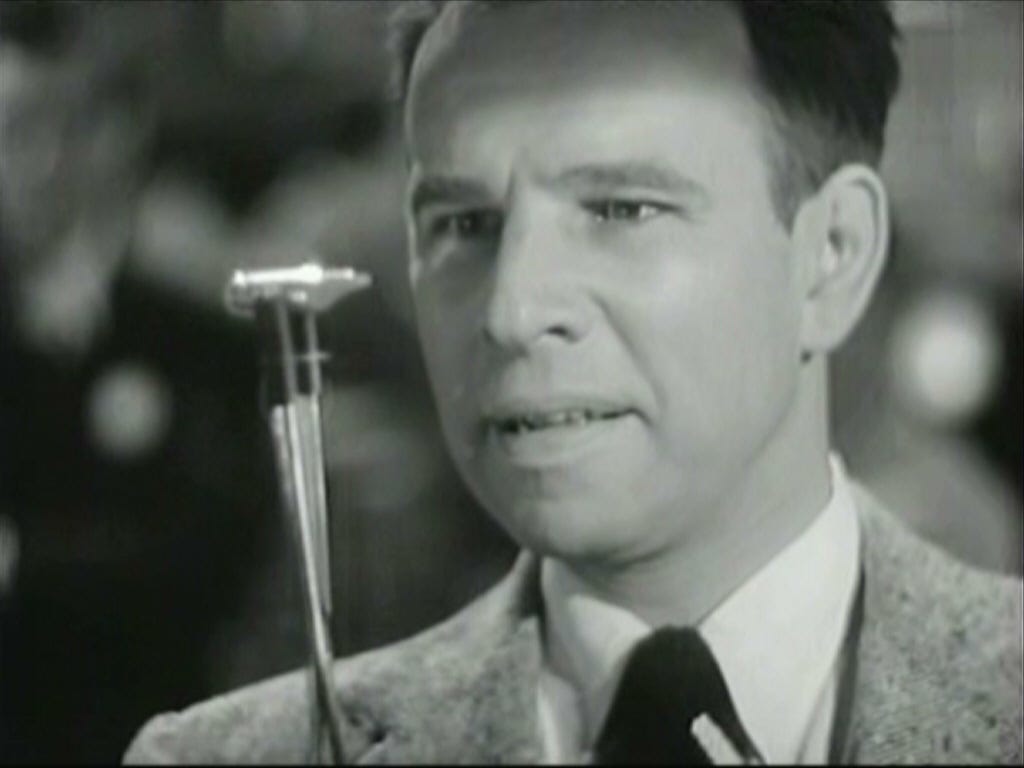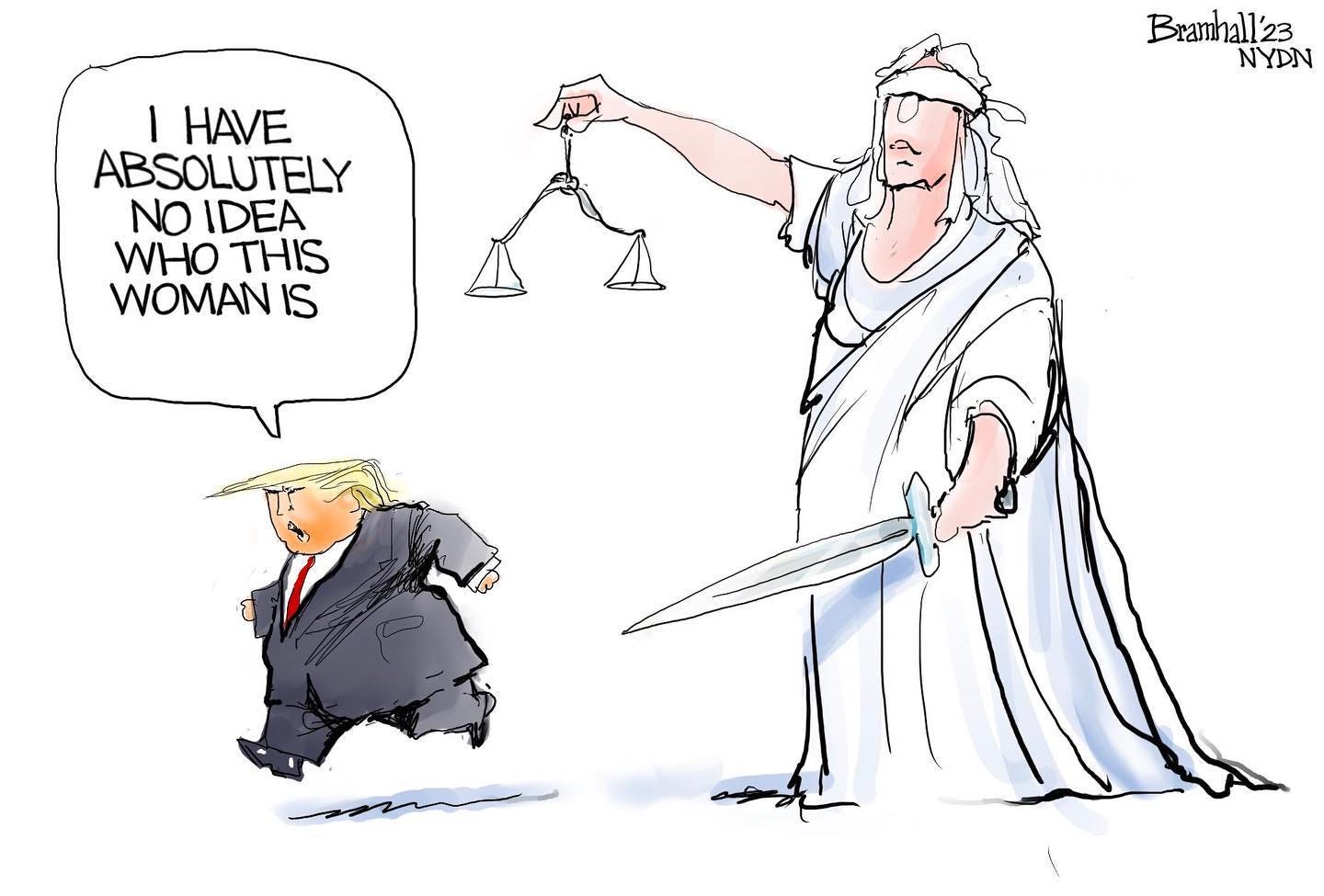New 'Oppenheimer' Trailer Arrives, Fears Remain
Will new Christopher Nolan raise questions about use of the first atomic bombs?
Since the mainstream media choose these days to pretty much ignore the tragedy—and lessons—regarding the atomic bombings of Japan in 1945, a fine opportunity exists for one of our most famous and inventive movie directors to shed fresh light on one of the most significant events of the past century. But will he? Or will Christopher Nolan’s Oppenheimer, coming to regular and IMAX screens this July, be all flash and little light?
A lengthy new trailer for the film dropped this week, see above (not much had followed the first interview with Nolan and new stills from months ago). Nolan will surely show a complex “Oppie” in both the bomb-devising scenes at Los Alamos and facing his postwar “loyalty” charges. Whether Nolan will recognize the full human toll at Hiroshima and Nagasaki and make clear that 85% of the 200,000 dead were civilians—that’s a question.
It’s certainly not apparent from the new trailer, where there are no references to that but has a character claiming the bomb would “end the war.” In fact, most of the Nolan images of the building and final assembly and testing of the bomb revealed in the trailer have appeared in numerous previous movies and TV series going back over 75 years. Yes, they get the full blown (literally) modern special effects treatment but it’s that child-like gadget/explosive delight that has doomed many previous versions and prevented an appreciation of all of the other less exciting, yet far deeper, “special effects” of the Bomb on individuals and society. (Next: Oppenheimer, the video game? He only built the bomb as a Call of Duty.)
Nolan’s film features a massive cast of movie notables, with Cillian Murphy as Oppenheimer far from the best known among Matt Damon, Emily Blunt, Robert Downey Jr., Florence Pugh and so on. It’s not that “Oppie” has never been portrayed by fine actors before, such as Sam Waterston and David Strathairn. Little has leaked about Nolan’s script but it is derived from, if not based on, the Pulitzer-winning book American Prometheus, authored by two of my friends, Kai Bird and the late Martin J. Sherwin. The latter was an adviser on my recent doc, Atomic Cover-up.
Based on photos and hints released by the studio, it appears to be a full-blown bio-pic with Oppenheimer’s time at Los Alamos (and any grappling with, or throwing off, guilt afterward) just the main part of it. We will see Oppie as a college student and his rise in the physicist world and then, a few years after Hiroshima, his victimhood as he fights to retain his security clearance and career amid charges of being a little too cozy (maybe) with certain “Reds” in America.
But on the “Hiroshima” question, does the script show Oppenheimer opposing attempts by key scientists to get Truman to delay using the weapon against Japan? And explore the key reasons that this murderous use, indeed, was likely not necessary? And that Oppenheimer, despite his public and private hand-wringing about it, never really regretted making the bomb and then endorsing its use over two cities? One does not want to judge the film based on the teasers and trailers and other hype, and Hollywood’s track record, so just asking questions here.
I happen to be something of an Oppenheimer expert myself, having studied and written about him in two books you might consider: Hiroshima in America (with Robert Jay Lifton) and the award-winning The Beginning or the End, about an earlier major movie about the bomb that was gutted by Truman and the Pentagon. That book shows how Oppenheimer, in his usual manner, dithered but then cooperated with the making of that horrid and propagandistic 1947 MGM movie. He’s therefore a key character in that book. Then there is my 2020 Atomic Cover-up on the U.S. suppression of the most important footage from Hiroshima and Nagasaki for decades, which Oppenheimer apparently did not oppose (my book and ebook of the same name here).
I’ll be returning to Oppenheimer and Oppenheimer here over the next several months but for now here is an except from my The Beginning or The End. Next: “Oppie” sells out in a meeting with the MGM producer in his Berkeley Hills home. Enjoy, then subscribe to this newsletter if you have not, it is still free!
»»»»>And see my previous post this week on my new PBS film, Memorial Day Massacre: Workers Die, Film Buried, which premiered on Saturday but is now easy to watch (I provide links) by all, online or streaming, and also—there’s a companion book. When Chicago police shot and killed ten striking steel workers and the film cover-up that followed.
The FBI vs. Oppenheimer and The Scientists
When the largest studio in Hollywood, MGM, decided near the end of 1945 to create the first major movie about the creation and use of the atomic bomb, producers naturally sought the approval of key Manhattan Project scientists. The movie, in fact, had been inspired by an urgent letter from Dr. Edward Tompkins, a young scientist at the Oak Ridge site in Tennessee, to one of his former chemistry students back in Iowa, actress Donna Reed. He pleaded with her to engage Hollywood in shooting a movie that would warn the world about the dangers of using the new weapon for further military uses, or else face a nuclear arms race or possibly even the end of civilization.
Reed, by chance, happened to be well-positioned to play such a role, as her new husband, Tony Owen, was a talent agent and friend of MGM studio chief Louis B. Mayer. Within days he had met with Mayer, who immediately signed off on a movie, soon to be called The Beginning or the End, promising to make it the "most important" movie he would ever release. To achieve that, however, the studio would have to get signed releases from the leading characters in this docu-drama, from military figures to scientists Albert Einstein, Leo Szilard, Enrico Fermi—and the scientific chief at Los Alamos, J. Robert Oppenheimer.
The key military man, Gen. Leslie R. Groves, overall director of the Manhattan Project, quickly signed a contract and--in the most critical moments of the entire project--he managed to secure script approval from the studio and a then-lofty sum of $10,000 to act as chief adviser. This would, over time, move the message of the movie away from the scientists' warnings to its final endorsement of the bomb and its use against Japan. (In his review for the new Bulletin of the Atomic Scientists, Oak Ridge chemist Harrison Brown would lament the movie's "poor quality" and "falsification of history.")
MGM would not offer money or script approval to any of the scientists, but still needed them to give them written permission to portray them on screen. This led to rather desperate attempts during the first half of 1946 to gain their signatures.
It looked for a time like the studio would never convert a very skeptical Szilard. Einstein was so hostile to the very idea that he penned a dismissive letter to Mayer himself. Then Szilard convinced his reluctant friend Einstein to sign on as well, more from fatigue than from anything else.
But what about Oppenheimer (above right, with General Groves)?
In his usual manner, he acted Sphinx-like for months, at one moment mocking the project, then acting intrigued, but refusing to even look at a script. He even sat for two interviews with novelist Ayn Rand, who was writing a competing screenplay for Paramount (which ultimately went nowhere). MGM grew so discouraged it changed his character's name in the script for a time to the profoundly different "Whittier."
Finally, after reading the script that April, which he found often laughable in its depiction of the scientists, he hosted the movie's producer, MGM's Sam Marx, for dinner at his hillside home in Berkeley, during which he lobbied for various small revisions. When Marx agreed to attend to them, Oppenheimer offered his verbal approval, while telling a friend that the script was still embarrassingly weak.
While all this was transpiring, however, the FBI was closely monitoring the Einstein's mail, and following Szilard and Oppenheimer on their travels as possible security risks or for harboring left-wing views (and in the latter's case, alleged Communist Party membership in the past). They even established a phone tap at Oppenheimer's Berkeley residence. On at least one occasion, they taped his wife Kitty discussing the MGM movie with his former aide at Los Alamos, David Hawkins, who her husband had briefly installed on the MGM movie lot as his eyes and ears.
Also taped was this revealing conversation between Oppenheimer and his wife, one night in May 1946, when he was in the East. It's detailed for the first time in my new book, The Beginning or the End: How Hollywood--and America--Learned to Stop Worrying and Love the Bomb.
Near the end of a lengthy phone conversation—taped and transcribed as usual by the FBI—Kitty Oppenheimer informed her husband that he had received a letter from a certain "Hugh Cronin" (as the name was recorded in the transcript) in which he explained "why he would like to be you."
Robert asked: "Bill Cronin?" Kitty: "Hugh Cronin—that bloke that belongs to MGM."
This was actually the actor Hume Cronyn, who had been hired by MGM, improbably, to portray him (as Oppie, below). Unlike Oppenheimer, Cronyn was short, chunky, non-Jewish, Canadian.
"Well, I'll tell you what I did on this," Oppenheimer replied. "This very ugly creature [Colonel W.A. Consodine, a top Groves aide] called me and said that Marx had said it was all right and would I sign the release, and I said sure. I got the release and I signed it with a paragraph written in saying that all of this is subject to my receipt of a statement from Mr. Sam Marx that he believes the changes that have been made are satisfactory."
Kitty: "Oh."
Robert: "Well, I didn't think there was anything else to do. I don't want anything from them and if I can work on his [Marx's] conscience, that is the best angle I have. It just isn't worth anything otherwise, darling."
At this juncture, the call faded in and out. "The FBI must have just hung up," Robert quipped. The transcript recorded Kitty's response as: Giggles.
Then Robert concluded: "The only thing we can do there is to try to persuade them to do a decent job."
The movie would be released the following February, as pro-bomb propaganda, and draw mixed reviews and weak box office. No response from Einstein or Oppenheimer was recorded, but Szilard would comment, "If our sin as scientists was to make and use the atomic bomb, then our punishment was to watch The Beginning or the End."








